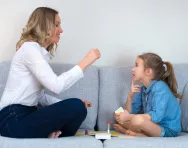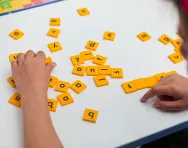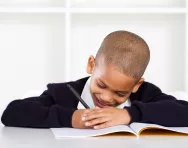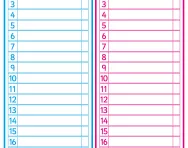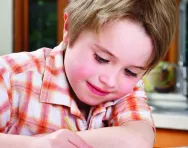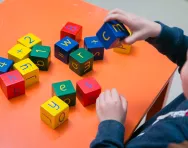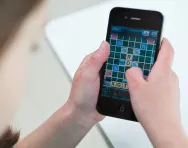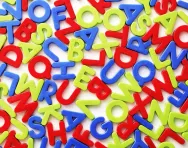Important update from TheSchoolRun
For the past 13 years, TheSchoolRun has been run by a small team of mums working from home, dedicated to providing quality educational resources to primary school parents. Unfortunately, rising supplier costs and falling revenue have made it impossible for us to continue operating, and we’ve had to make the difficult decision to close. The good news: We’ve arranged for another educational provider to take over many of our resources. These will be hosted on a new portal, where the content will be updated and expanded to support your child’s learning.
What this means for subscribers:
- Your subscription is still active, and for now, you can keep using the website as normal — just log in with your usual details to access all our articles and resources*.
- In a few months, all resources will move to the new portal. You’ll continue to have access there until your subscription ends. We’ll send you full details nearer the time.
- As a thank you for your support, we’ll also be sending you 16 primary school eBooks (worth £108.84) to download and keep.
A few changes to be aware of:
- The Learning Journey weekly email has ended, but your child’s plan will still be updated on your dashboard each Monday. Just log in to see the recommended worksheets.
- The 11+ weekly emails have now ended. We sent you all the remaining emails in the series at the end of March — please check your inbox (and spam folder) if you haven’t seen them. You can also follow the full programme here: 11+ Learning Journey.
If you have any questions, please contact us at [email protected]. Thank you for being part of our journey it’s been a privilege to support your family’s learning.
*If you need to reset your password, it will still work as usual. Please check your spam folder if the reset email doesn’t appear in your inbox.
Simple ways to make spellings fun
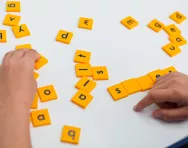
Speed grouping
One of the keys to successful spelling learning is to group the list into words that have similar spelling patterns. For example, your child might be learning ‘er’ words; some will be spelled ‘ir’ (e.g. shirt), some ‘ur’ (as in burn) and some ‘er’ (so louder). Write all the words on post-it notes and time your child as they sort them into the different groups of spelling patterns at speed.
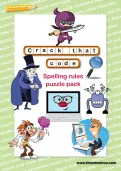
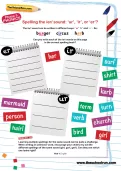
Claim FREE Spelling Resources Today
- Spelling workbooks
- Step-by-step programme
- Spelling test packs
- 100s of worksheets & games
Get interactive
Make the most of your child's digital skills and keen interest in using anything ‘grown-up’ and techno by downloading a spelling app or going online and using interactive spelling lists. We love Spellican for KS2 spellings, because you can work your way through every spelling in the curriculum, first with study, then practice and then online tests which are easy to use.
Switch places
Children love to play teacher, so turn the tables on the spelling-test preparation by playing student and getting them to quiz you. Make sure you ‘accidentally’ get a key part of the word wrong sometimes (but be warned, they will be far more brutal than their teacher when telling you where you’ve gone wrong!).
Type, don’t write
Put pencil and paper to one side and turn the computer on. Make sure the spellcheck is on and ask your child to type each of their spelling words. Explain that if they see a red wiggly line the spelling is wrong; they need to keep changing the word until they get it correct and there’s no line.
Make a wordsearch
There are loads to choose from on TheSchoolRun, but if you fancy preparing a custom one for a specific list of words they’re easy to make by drawing a grid (or using squared paper), entering the words your child is learning and then adding in other letters all around. Finding the words in wordsearches helps children to focus on how each word is made up.
Scrabble spell
Invest in a Scrabble set and make the weekly test prep into regular game time. Have all the scrabble letters to hand, and the rails to put them on. Ask your child to spell out each word. Add together the scores (using a calculator if you’re short on time). Find out which word has the highest score and award suitable prizes!
Spell on the fridge
Using magnetic letters, put each of their spelling words up on the fridge when you get the list. Each day choose a word or two and take away one of the letters or sounds. Ask them to correct the word which has been messed with!
Chalk it
Using chalk is great! Similar to wipeable whiteboards, erasing mistakes with ease it is great for learning words as it is practical and reduces the stress at the thought of ‘getting things wrong’. Have your child write out each word in chalk and then check their work themselves. You can do this outside in the garden, on paving or even on the wall. (Disclaimer: explain they’re only allowed to graffiti in chalk!).
Paint in water
On a warm day there is no other more satisfying, mess-free activity than taking a proper decorator’s brush and a bucket of water outside for children to paint with. Combine this with having them write their words in the water, and you’ve covered fun and learning in one super activity. (Plus writing huge letters is fantastic handwriting practice.)
Poems and riddles
Help your child write a poem or riddle for each spelling word – do it together and have fun with it! The rule is that they have to write the word at least once in each line. This activity helps them by having them copy out the word several times, fixing it in their mind, without seeing it as a boring copying activity.

